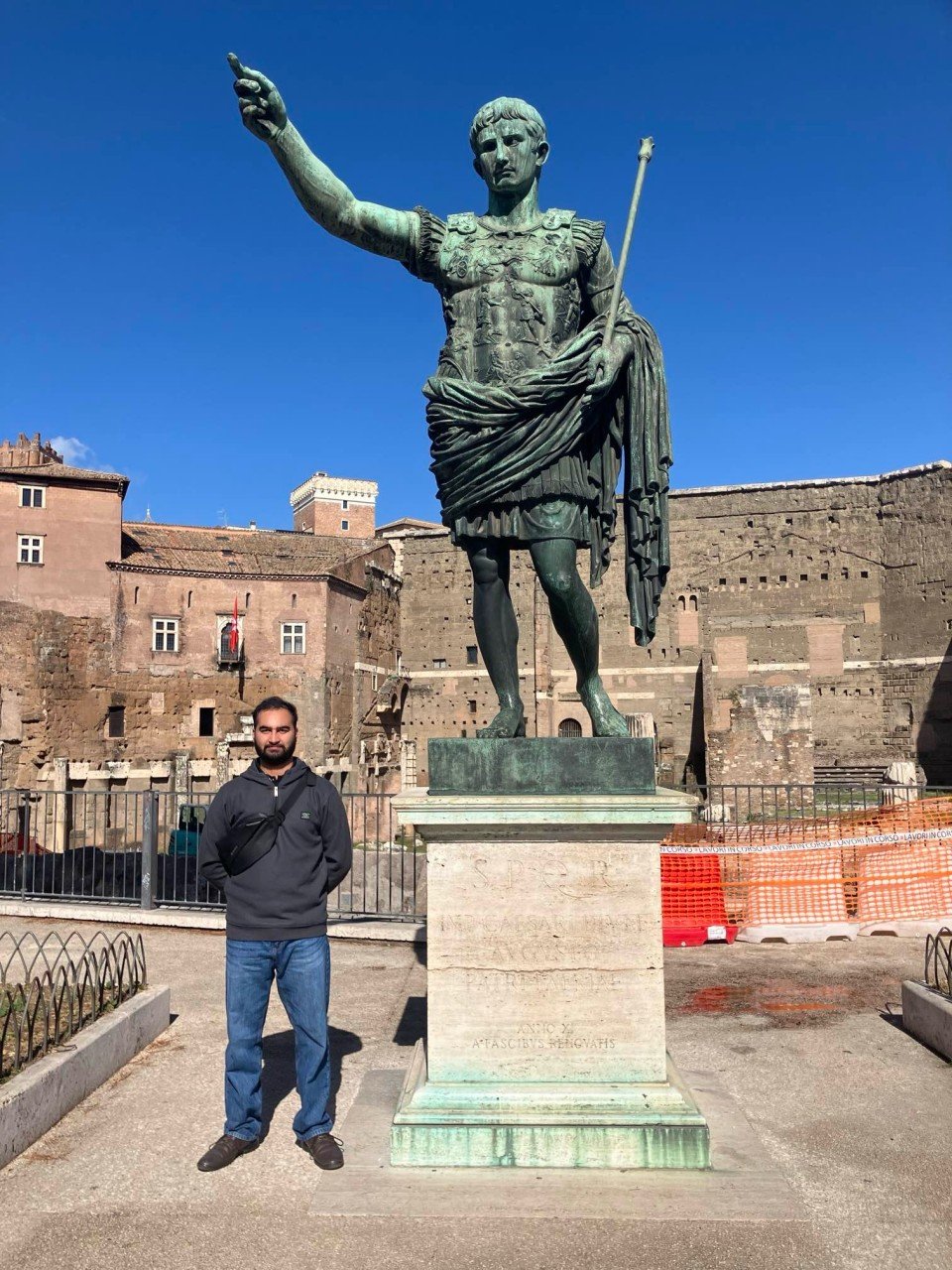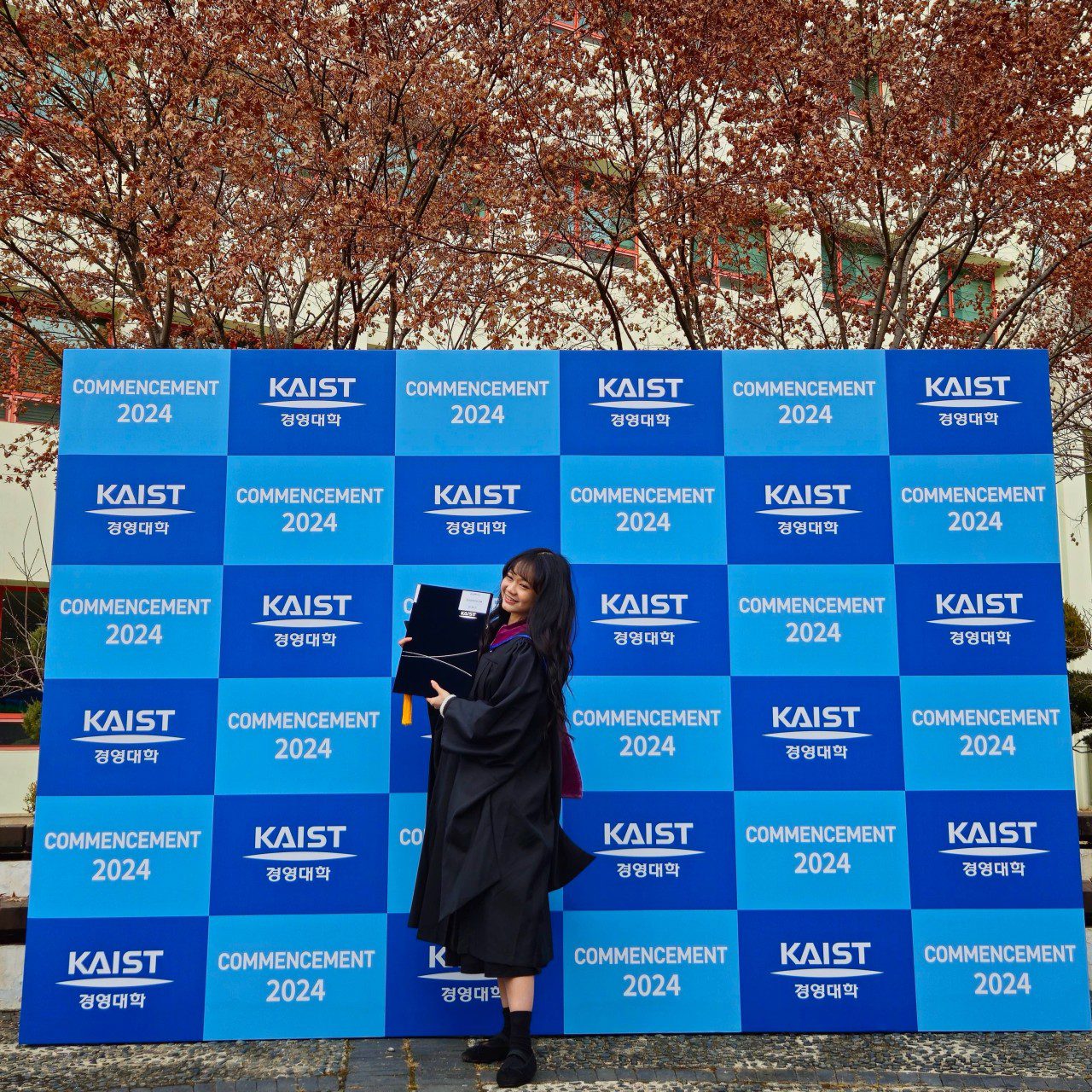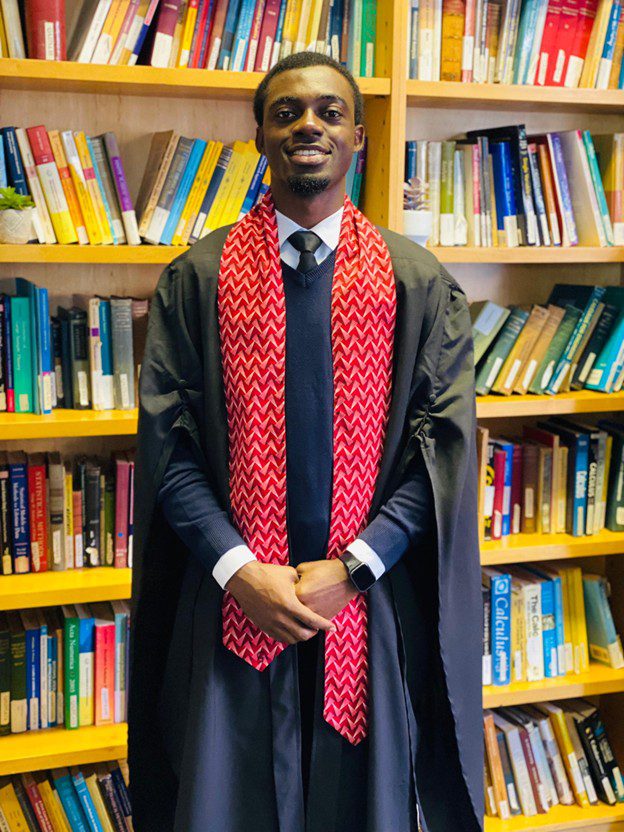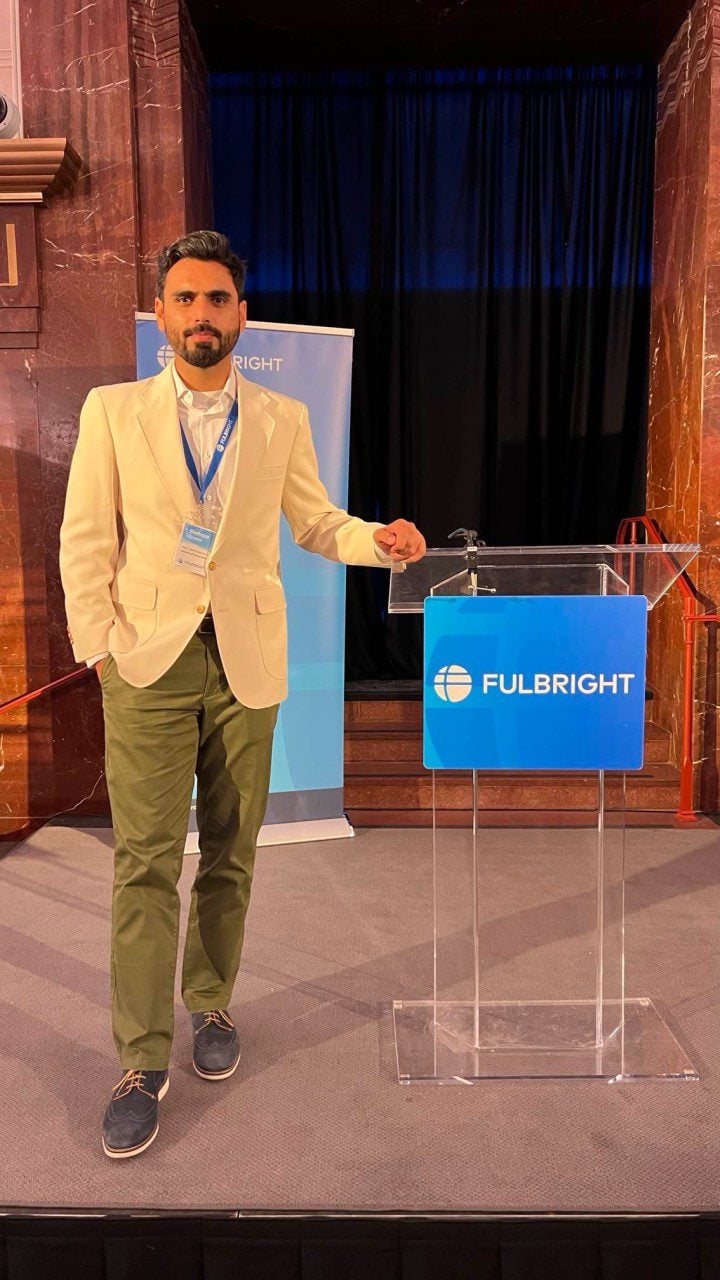Erasmus Mundus Scholar, Zain Ul Abideen from Pakistan, Pursues a Master’s in Astrophysics and Space Science (MASS) Across Four European Universities
University: University of Rome Tor Vergata, University of Belgrade, University of Bremen, and Université Côte d’Azur
Degree: Erasmus Mundus Joint Master’s in Astrophysics and Space Science (EMJM-MASS)
Previous Education: Bachelor’s in Space Science, Institute of Space Technology, Islamabad, Pakistan
Scholarship: Erasmus Mundus Joint Master’s Scholarship – Fully Funded (covers tuition, monthly stipend of €1,400, travel, and insurance)
Social Media

The Journey
My name is Zain Ul Abideen, and I hold a Bachelor’s degree in Space Science from the Institute of Space Technology in Islamabad, Pakistan. My undergraduate research focused on nuclear astrophysics, particularly the nuclear processes occurring inside stars. I have published multiple research articles in international peer-reviewed physics journals. Alongside my research work, I have been actively involved in computational projects; for example, my contributions to nuclear reaction modeling led to my name being added to the log file of TALYS, a widely used simulation tool developed by a senior official at the International Atomic Energy Agency (IAEA).
My fascination with stars and their inner workings is what first drew me to astrophysics, and it has guided my academic path ever since. After graduating in 2024, I knew I wanted to pursue higher studies. Unfortunately, in Pakistan, there are very limited resources and opportunities in advanced physics and astrophysics, which meant I had to look abroad. This presented its own challenges: from securing timely recommendation letters to navigating visa procedures. Ironically, obtaining a fully funded offer turned out to be one of the easier parts of the process.
How Did You Prepare to Apply to the Erasmus Mundus Scholarship?
After graduation, I worked part-time as a tutor at Sir Mushtaq Science Academy in Islamabad, teaching physics and mathematics to high school students, while dedicating my remaining time to searching for fully funded programs worldwide. My strategy was to target one specific program and tailor my profile to maximize my chances of acceptance. This is when I came across the Erasmus Mundus Joint Master Program in Astrophysics and Space Science (EMJM-MASS). Beyond being fully funded by the European Union, it is also one of the most competitive astrophysics programs in the world. I studied the program website extensively, refined my CV and motivation letter to align with their expectations, and researched the work of faculty members to strengthen my application.
Could You Briefly Discuss the Erasmus Mundus Program You Pursued and the Specific Field of Study It Focused On?
The EMJM-MASS program is jointly delivered by four European universities: the University of Rome Tor Vergata, the University of Belgrade, the University of Bremen, and Université Côte d'Azur. All students spend the first semester in Rome, while the second semester is hosted by any partner university except Rome. I plan to attend the University of Belgrade for my second semester and return to Rome for the third and fourth semesters, as the courses most relevant to my research interests are offered there.
How Did the Cost of Living Vary Across the Countries You Studied In? Which Country Was the Most Affordable or Expensive, and How Did You Manage Financially?
Living expenses vary significantly across the consortium locations. In Rome, rents are high: I paid €750 per month for a private room located about ten minutes from campus by bus. Bremen and Nice have similarly high costs, though the French government provides partial rent reimbursement for students. Belgrade, however, is considerably more affordable, with good private rooms costing around €500 per month, all inclusive. As a full-scholarship recipient receiving €1,400 monthly, I was able to live comfortably throughout my studies. The program’s language of instruction is English; although some professors occasionally struggled to convey complex ideas precisely in English, language was never a major barrier to learning.
Would You Recommend the Erasmus Mundus Program to Others? What Advice Would You Give to Someone Considering This Scholarship?
Applicants must find ways to distinguish themselves from the crowd in order to maximize their chances of being accepted. This year, the EMJM-MASS program received over 500 applications, of which only 25 were awarded scholarships. Similar ratios apply to many Erasmus Mundus programs, reflecting their global reputation and competitiveness. I strongly recommend the EMJM-MASS program in particular, and Erasmus Mundus programs in general, for their academic prestige, financial stability, and international exposure. Unlike many of my peers, I did not need to take on part-time work to fund my studies, and being part of a joint program gave me access to faculty and research opportunities across four respected European universities.
Want to submit your
scholarship journey?
Submit Your Story Here!
More Scholarship Recipients

My name is Vania Estrellita Soegiarto, and I am from Indonesia. I pursued a Finance MBA at KAIST Business School in South Ko .... Read more

Hello, I’m Toyeeb Olamilekan Abubakar from Nigeria. I earned a Bachelor of Science degree in Statistics from the Universit .... Read more

My name is Shehryar Jafar, and I’m from Karachi, Pakistan. I’m currently a PhD student in Electrical Engineering at the .... Read more

Leave A Comment